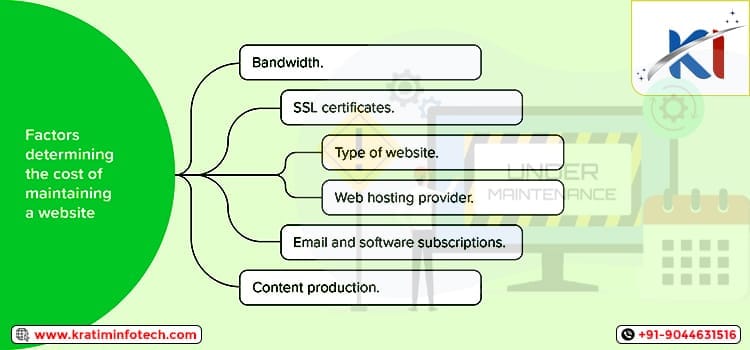Essential Tips for Website Maintenance
The Ultimate Guide to Website Maintenance: Ensuring a Seamless Online Presence
In today’s digital age, a website is often the first interaction customers have with a business. It’s a powerful tool that can drive sales, build brand reputation, and foster customer loyalty. However, to achieve these benefits, a website must be well-maintained. Neglecting website maintenance can lead to security vulnerabilities, slow performance, and a poor user experience, ultimately impacting your bottom line. This comprehensive guide will explore the importance of website maintenance, key components of an effective maintenance plan, and best practices to keep your website running smoothly.
Why Website Maintenance Matters
1. Security:
One of the most critical aspects of website maintenance is security. Websites are constantly under threat from hackers and malicious software. Regular updates to your website’s content management system (CMS), plugins, and themes are essential to patch vulnerabilities and protect sensitive data. Additionally, implementing robust security measures such as SSL certificates, firewalls, and regular backups can safeguard your website from potential attacks.
2. Performance:
Website performance is crucial for user satisfaction and search engine rankings. Slow-loading pages can annoy visitors, causing them to leave quickly and miss out on potential opportunities. Regular maintenance, including optimizing images, cleaning up unnecessary code, and leveraging caching techniques, ensures your website runs efficiently. Monitoring server performance and uptime also helps in identifying and resolving issues before they impact users.
3. User Experience (UX):
A well-maintained website offers a seamless and enjoyable user experience. Broken links, outdated content, and poorly functioning features can deter visitors and harm your credibility. Regularly updating your content, fixing broken links, and testing website functionality are essential to provide a positive experience for your audience. Additionally, ensuring your website is mobile-friendly and accessible to all users, including those with disabilities, enhances your reach and inclusivity.
4. SEO and Content:
Search engine optimization (SEO) is an ongoing process that requires consistent effort. Regularly updating your website with fresh, relevant content not only keeps your audience engaged but also signals to search engines that your site is active and valuable. Performing routine SEO audits, optimizing meta tags, and improving site structure are crucial tasks that contribute to better search engine rankings and increased organic traffic.
Key Components of an Effective Website Maintenance Plan
1. Regular Updates:
Keep your CMS, plugins, themes, and scripts up to date. These updates often include security patches and performance improvements that are vital for your website’s health.
2. Security Measures:
Implement and maintain robust security protocols. This includes installing SSL certificates, setting up firewalls, conducting regular security scans, and backing up your website regularly.
3. Performance Optimization:
Regularly monitor and optimize your website’s performance. This includes compressing images, minifying code, and using content delivery networks (CDNs) to reduce load times.
4. Content Management:
Regularly review and update your website content to ensure it remains relevant and accurate. Remove outdated information, add new blog posts or articles, and ensure all links are functioning correctly.
5. User Experience Testing:
Conduct regular usability testing to identify and fix issues that could affect user experience. This includes testing website navigation, forms, and interactive features across different devices and browsers.
6. SEO Audits:
Perform regular SEO audits to ensure your website is optimized for search engines. This includes checking for broken links, optimizing meta descriptions and titles, and ensuring your website’s structure is search engine friendly.
Best Practices for Website Maintenance
1. Set a Maintenance Schedule:
Establish a routine maintenance schedule, whether it’s weekly, monthly, or quarterly, to ensure all tasks are completed consistently.
2. Use Maintenance Tools:
Utilize website maintenance tools and services that can automate and streamline various tasks, such as backups, security scans, and performance monitoring.
3. Keep a Log:
Maintain a detailed log of all maintenance activities, updates, and changes. This helps in tracking progress, identifying recurring issues, and providing valuable insights for future improvements.
4. Engage Professional Services:
If website maintenance becomes overwhelming, consider engaging professional services. Experienced website maintenance providers can offer comprehensive solutions tailored to your specific needs, ensuring your website remains secure, fast, and user-friendly.
In conclusion, website maintenance is an ongoing process that is crucial for the success of your online presence. By prioritizing security, performance, user experience, and SEO, you can ensure your website remains a valuable asset to your business. Implementing a structured maintenance plan and following best practices will help you stay ahead of potential issues and keep your website running smoothly. Remember, a well-maintained website not only attracts and retains visitors but also strengthens your brand’s credibility and trustworthiness in the digital landscape.


